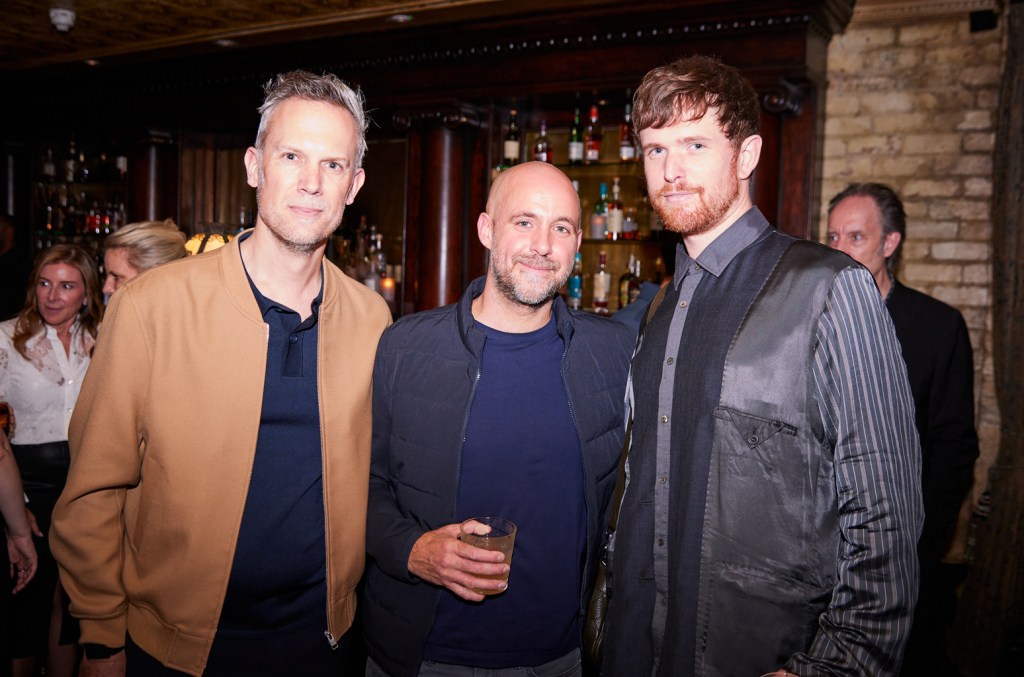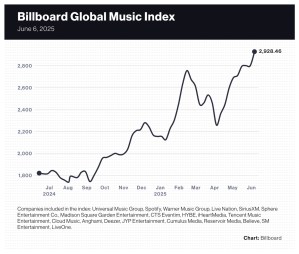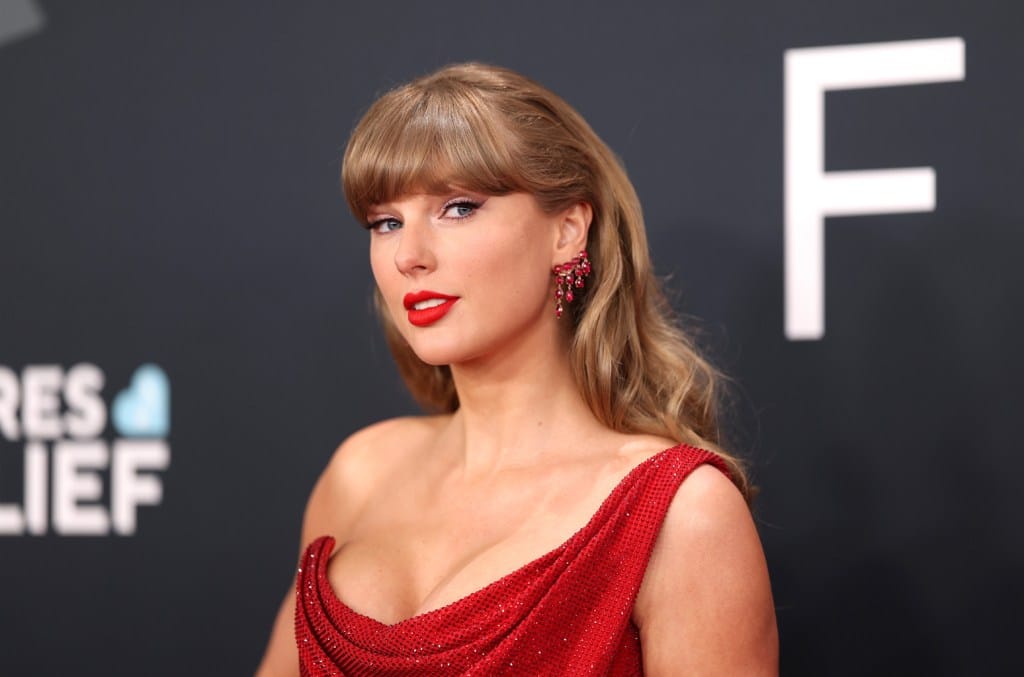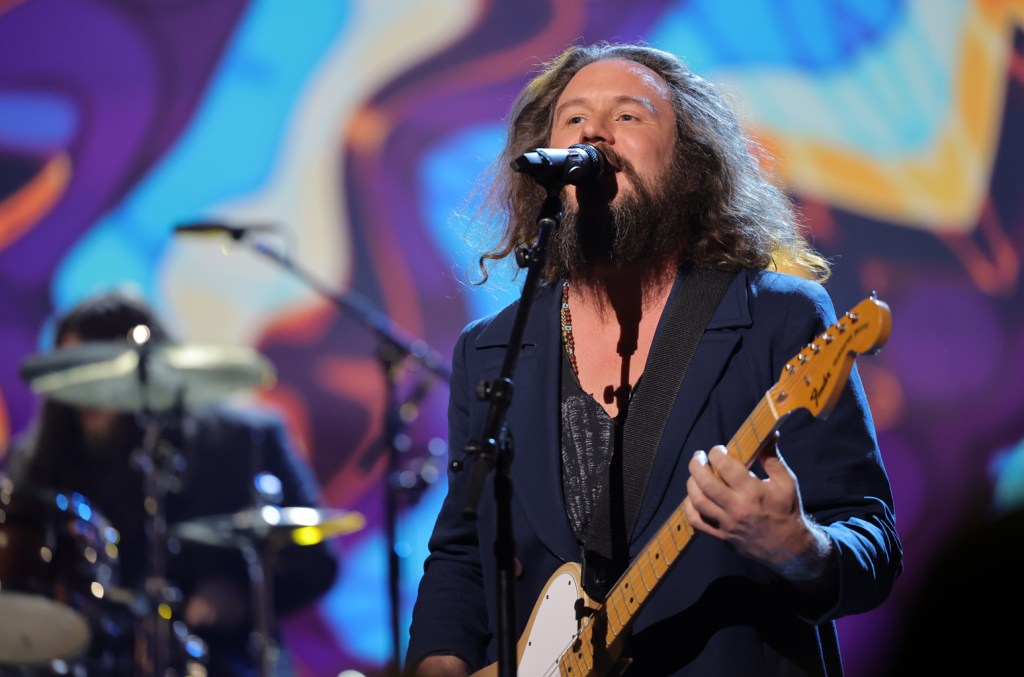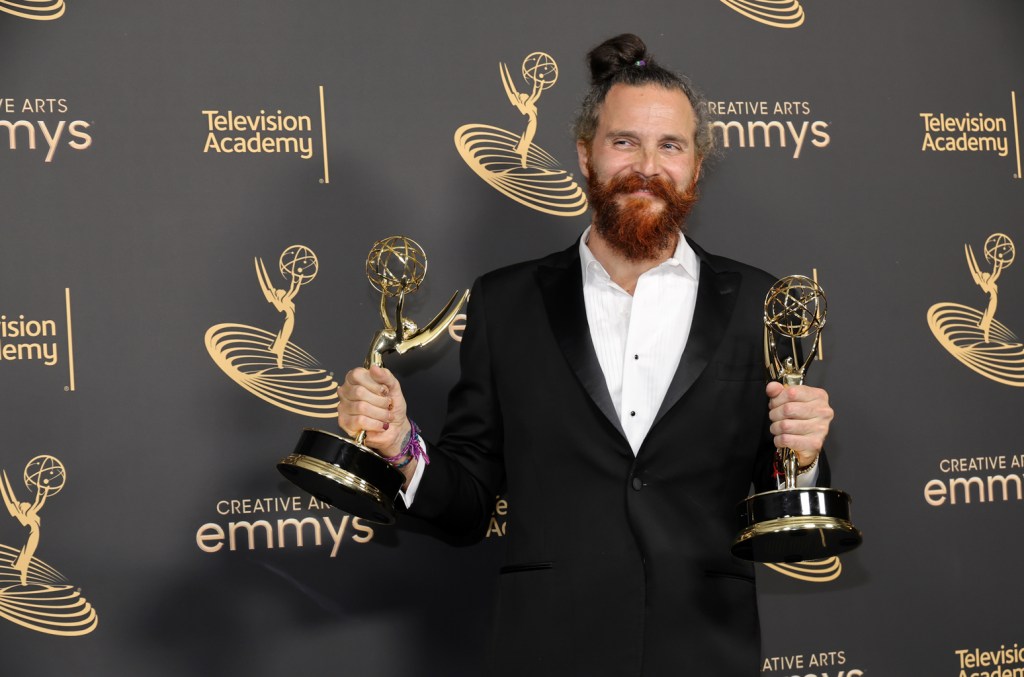Business
Page: 44
As the SXSW festival made its London debut this week, a group of top music industry leaders convened for an intimate dinner hosted by Luminate — the data and insights company that powers the Billboard charts — and Music Business Worldwide. The mix of music company CEOs and entrepreneurs — many of whom had just […]
Sony claims in a new lawsuit that streaming platform LiveOne and its subsidiary Slacker Radio owe $2.6 million in unpaid licensing fees yet are refusing to stop playing the label’s music, including tracks by Beyoncé, Miley Cyrus and Tate McRae.
The allegations come in a federal lawsuit Sony filed Friday (June 6) against LiveOne and Slacker, which LiveOne acquired in 2017 and has since folded into the LiveOne streaming app.
Sony and Slacker have been doing business with each other since 2007 through a content distribution deal, according to the lawsuit. But Sony’s lawyers say LiveOne and Slacker stopped making regular monthly licensing payments in August 2024 and now owe a total outstanding balance of $2.6 million.
Trending on Billboard
“In the past several months alone, Slacker claims to have seen increasing commercial success, touting a surge in usage of the LiveOne app and a year-over-year surge in content views,” write Sony’s attorneys. “Despite this self-proclaimed growth, Slacker—true to its name—has failed to make license payments to Sony Music as and when required under the agreement, and its parent, LiveOne, has likewise failed to live up to its guarantee.”
According to the lawsuit, Sony notified LiveOne and Slacker in March that it was terminating the content distribution deal in light of this contract breach. Sony says it “expressly informed” them that further use of its music would constitute copyright infringement, according to the lawsuit.
But Sony’s lawyers claim the LiveOne app is still streaming more than 200 of the label’s songs — also including tracks by Doja Cat, Harry Styles, Justin Timberlake and Khalid.
“Slacker’s conduct has caused and continues to cause substantial and irreparable harm to Sony Music and its artists, while enriching defendants at the expense of Sony Music and its artists,” write Sony’s lawyers. “By this lawsuit, Sony Music seeks damages for Slacker and LiveOne’s breach of the agreement and for defendants’ willful infringement of Sony Music’s copyrights since the March 15, 2025, termination of the agreement.”
Representatives for Slacker did not immediately return Billboard’s request for comment on the claims.
The lawsuit comes three years after Slacker and LiveOne faced a different lawsuit over unpaid fees from SoundExchange, the nonprofit that collects and distributes royalties to record labels and artists. A federal judge ultimately ordered the streaming companies to pay SoundExchange nearly $10 million in past-due royalties.
Spotify’s share price surpassed $700 for the first time this week and reached a new all-time high of $717.87 on Thursday (June 5). The Swedish-based, New York-listed company ended the week up 6.9% to $712.26.
Through Friday (June 6), Spotify’s share price has increased 52.6% year to date, and its market capitalization has gained $54 billion to $145.8 billion. In an up-and-down year for most stocks, Spotify has rewarded investors with consistent subscriber growth and improved margins resulting from layoffs in 2023. The company finished the first quarter with 268 million subscribers, up 12% year over year, and total revenue of $4.54 billion was up 15%.
Spotify wasn’t the biggest gainer of the week, but its immense size was a major factor behind the 4.6% gain by the 20-company Billboard Global Music Index (BGMI) for the week ended June 6. The BGMI has gone nine consecutive weeks without a decline after a two-week decline in late March and early April. Behind 14 gainers and only six losers, the index reached a new high of 2,928.46 and brought its year-to-date gain to 37.8%.
Trending on Billboard
Markets finished the week strong after a U.S. jobs report on Friday showed that unemployment remained steady amidst the uncertainty caused by U.S. trade policy. The Nasdaq composite was up 2.2% while the S&P 500 rose 1.5%. South Korea’s KOSPI composite index gained 4.2%. China’s SSE Composite Index improved 1.1% and the U.K.’s FTSE 100 gained 0.7%.
Music streaming stocks performed especially well this week. LiveOne was the biggest gainer after rising 16.2% to $0.86. Tencent Music Entertainment jumped 6.8% to $17.96 and is trading at its highest mark since 2021. Netease Cloud Music rose 3.6% to 218.80 HKD ($27.88). Deezer and Anghami were exceptions, falling 1.5% and 5.3%, respectively.
Live Nation was the best-performing live music stock after gaining 5.0% to $144.15. Bernstein initiated coverage of Live Nation this week with an “outperform” rating and a $185 price target. MSG Entertainment rose 1.8% to $37.77, and CTS Eventim was up 0.5% to 107.20 euros ($122.26). Sphere Entertainment Co. fell 0.3% to $37.67, bringing its year-to-date loss to 11.3%.
iHeartMedia gained 14.5% to $1.50. The stock rose 10% on Thursday as the company announced the appointment of deputy CFO Michael McGuinness as iHeartMedia’s principal accounting officer. Previous principal accounting officer Scott Hamilton transitioned to a consultant role for the company.
Believe rose 11.6% to 17.08 euros ($19.48) after the company increased its bid to buy out remaining shareholders to 17.20 euros ($19.62), a 12.4% increase from the original bid of 15.30 euros ($17.45). The consortium that took the Paris-based company private in 2024 currently owns 96.7% of share capital.
The two standalone major music companies had mixed results. Warner Music Group rose 0.2% to $26.37, bringing its year-to-date decline to 15.0%. Universal Music Group fell 2.8% to 27.36 euros ($31.20), lowering its year-to-date gain to 14.4%.
K-pop stocks posted gains across the board. HYBE rose 7.0%, erasing the previous week’s 6.8% decline. YG Entertainment was up 7.9%. SM Entertainment rose 4.8% and JYP Entertainment improved 4.0%.
Reservoir Media fell 6.4% to $7.30, increasing its year-to-date loss to 13.7%. On Friday (June 6), B Riley lowered its price target for Reservoir Media to $11.50 from $12.50 and maintained its “buy” rating.
Billboard
Billboard
Billboard
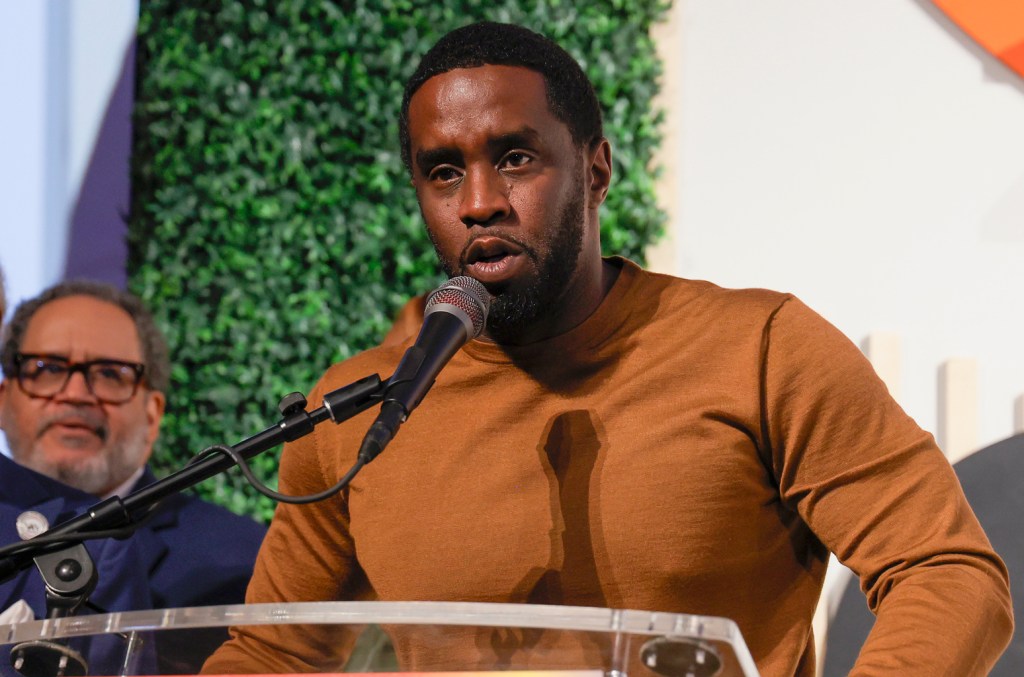
The fourth week of Sean “Diddy” Combs‘ sex-trafficking trial featured dramatic testimony about the rap mogul dangling a woman from a 17th-floor balcony and buying damning surveillance footage with $100,000 in cash in a paper bag, while a former girlfriend using the pseudonym “Jane” got emotional on the witness stand as she described being forced to participate in marathon “freak-offs.”
Combs is accused of using violence, money and blackmail to force women to participate in elaborate, drug-fueled sex shows called “freak-offs” — charges that Combs denies, saying his sex parties were consensual. Federal prosecutors have been presenting the case to a jury in New York since early May.
The trial’s fourth week began on Monday (June 2) with the cross-examination of Combs’ former assistant, who’s using the pseudonym “Mia” in the trial. Mia testified that Combs sexually assaulted her numerous times during her employment, according to reporting from the New York Times.
On Tuesday (June 3), a security officer at the InterContinental Hotel in Los Angeles told the jury that Combs gave him a brown paper bag full of $100,000 in cash in exchange for now-infamous surveillance footage of the rapper violently beating his then-girlfriend Cassie Ventura. That video is a centerpiece of the prosecution’s case against Combs.
“He said not to make any big purchases,” testified the security officer, Eddy Garcia, according to the Times.
Prosecutors will likely point to Garcia’s testimony to back their claim that Combs used money and the power of his businesses to obstruct justice, a central piece of their racketeering conspiracy charge, while Team Combs has said he was merely trying to prevent bad publicity in buying the footage.
Wednesday (June 4) brought more dramatic testimony, this time from Ventura’s friend Bryana Bongolan. Bongolan alleged that Combs dangled her from the 17th-floor balcony of Ventura’s apartment in 2016, an incident that Ventura previously chronicled in her civil lawsuit that sparked Combs’ downfall.
“I have night terrors and paranoia and scream in my sleep at times,” Bongolan testified about the lasting psychological impact of that night, according to CNN.
Bongolan also told the jury that she once witnessed Combs throwing a knife at Ventura, who gave lengthy testimony at the beginning of the trial about years of alleged abuse. Another time, Bongolan said, Combs threatened her life at a photoshoot.
“He came up really close to my face and said something around the lines of, ‘I’m the devil and I could kill you,’” Bongolan said.
Jurors spent the bulk of both Thursday and Friday (June 5 and June 6) hearing from an anonymous former girlfriend of Combs using the pseudonym “Jane,” the Washington Post reports. In emotional and at times tear-filled testimony, Jane said she felt obligated to participate in Combs’ freak-offs because he paid her rent and other bills.
The jury also watched videos of the freak-offs, in which Jane said Combs forced her to have sex with multiple male escorts over the course of more than 24 hours at a time. She said Combs rejected her requests to use condoms and wouldn’t let her take breaks when she was in pain.
Jane’s testimony often mirrored that of Ventura; notably, both women claimed that Combs coerced them into performing sex acts that the rapper’s defense lawyers insist were consensual. This came through in text messages between Jane and Combs that were entered into evidence.
“I don’t want to play this role in your life anymore. It’s dark, sleazy and makes me feel disgusted with myself,” wrote Jane in one message. “I don’t want to feel obligated to perform these nights with you in fear of losing the roof over my head.”
“Girl stop,” Combs replied.
Jane is set to return to court on Monday (June 9) for more testimony. The trial is scheduled to continue for up to another month.
If owning two versions of four of her Big Machine albums presents a challenge to Taylor Swift, it’s a great problem to have. Then again, it might not be a problem at all.
At first blush, it might seem that Taylor Swift’s decision to purchase her Big Machine master recordings presents her with a difficult decision. Does she emphasize the original versions or the high-profile re-recordings that many fans have purchased and streamed? Then again, Swift isn’t necessarily forced to choose between the two versions of her catalog. Conversations with multiple music industry veterans revealed there are many options for monetizing the Big Machine releases and getting the most out of her investment.
Swift’s immensely successful re-recordings, given the name “Taylor’s Version,” have amassed 15.8 million track equivalent albums (TEAs) in the U.S. so far, according to Luminate. But despite driving her fans to those re-recordings, the four Big Machine versions have continued to perform well. Year to date, the original versions of Fearless, Speak Now, Red and 1989 have a total of 331,000 track equivalent albums in the U.S. — about 40% as much as the re-recorded albums.
Trending on Billboard
When Shamrock owned the Big Machine masters, Swift effectively had veto power over requests for synch licenses. If a music supervisor wanted a track from one of her Big Machine albums, Swift, who is either the sole songwriter or a co-writer on every track, could refuse to grant permission for the publishing rights. And she announced her intention to do just that in an interview with Billboard after Ithaca bought her catalog in its 2019 Big Machine acquisition, saying she would license her music for movies and commercials only if she owned the master rights. That’s why a 2020 Match.com ad used a re-recording of “Love Story,” not the Big Machine original.
Owning the Big Machine masters opens the door for more synch licenses. Whether the music supervisor wants the original or the re-recording, Swift, as the sole owner of both versions, has a financial incentive to put her songs in ads, films, TV shows and movie trailers, says Bryan Calhoun, a marketing consultant. “I would say, ‘Hey, let’s go crazy. I own this stuff. Let’s go hard.’ And I would have some people dedicated to really being aggressive about going and getting licenses.”
Owning her Big Machine catalog will also create more synch opportunities because some directors and music supervisors will want Swift’s original versions. Michael Hausman, manager of Aimee Mann and ‘Til Tuesday, says Mann re-recorded her song “Wise Up” to keep 100% of the revenue. “It worked out well,” he says. “Most people probably could never tell the difference.” But some music supervisors “just don’t like the idea of a re-record and they want the original,” he adds, “even if there’s no difference” between the two.
Swift’s most fervent fans supported her re-recordings and, in some cases, showed solidarity in her feud with Scooter Braun, whose Ithaca Holdings acquired Big Machine, by avoiding the Big Machine originals. Her four Taylor’s Version re-recorded albums, stuffed with additional material and released in multiple variations, have sold a combined 6 million units to date in the U.S. across digital download and physical formats, according to Luminate. Sales and streaming executive Adam Abramson believes that Swift would similarly find a welcome response to reissues of the original albums.
“While the Swifties were happy to accept the re-records at that time so that they did not have to buy or stream the original, ‘problematic’ versions, I think most will be thrilled to be able to listen to the original albums as they were recorded at those respective points in Taylor’s life,” says Abramson.
Album reissues tend to coincide with anniversaries, and owning her Big Machine catalog gives Swift the opportunity to celebrate her original albums’ 20th anniversaries. Her self-titled Big Machine debut — which was not re-recorded — will turn 20 next year, followed by Fearless in 2028, Speak Now in 2030, Red in 2032 and 1989 in 2034. That gives Swift eight years to repackage her first five Big Machine albums. And considering how well her four re-recorded albums sold, it’s reasonable to think Big Machine anniversary editions could see a similarly strong response from fans.
Owning two versions also gives Swift additional streaming revenue. While Swift has pushed her re-recordings, the Big Machine versions had the benefit of inertia. The four original Big Machine albums have accumulated 406 million on-demand streams in the U.S. in 2025. That’s about two-fifths of the streams from the re-recorded albums, but that many streams — worth 293,000 TEAs — will generate well over $2 million in annual royalties in the U.S. alone.
News of the Swift purchase is an opportunity for digital service platforms (DSPs) to take advantage of fans’ interest, says Adamson. “I would not be surprised, and have already started to see, the DSPs highlighting her newly owned catalog again.” Indeed, on Wednesday (June 3), just four days after Swift announced the acquisition, Apple Music took to Instagram to encourage subscribers to delve into Swift’s entire catalog.
There’s also the lesson of Garth Brooks, who bought his Capitol Records masters in 2005 and took them off streaming and download stores. Brooks tightly controlled the availability of his catalog, first licensing the recordings to Walmart in 2005, then to Amazon in 2017. Brooks has also made deals with select retailers — Bass Pro Shops, Cabela’s, Dollar General — to sell his box sets. Downloads of his music were also made available at GhostTunes, an online music store launched by Brooks in 2014. Brooks could do whatever he wanted because he owned the masters.
Swift could take the Brooks route and do exclusive deals with digital and e-commerce platforms. But it seems more likely that she will capitalize on her unique ability to motivate consumers and maximize her catalog’s availability across all sales and streaming channels. Swift can arguably squeeze more out of her catalog than any one DSP or e-commerce platform, and she’ll do more with it than an investor like Shamrock. “It’s more valuable in her hands than in somebody else’s hands,” says Calhoun.
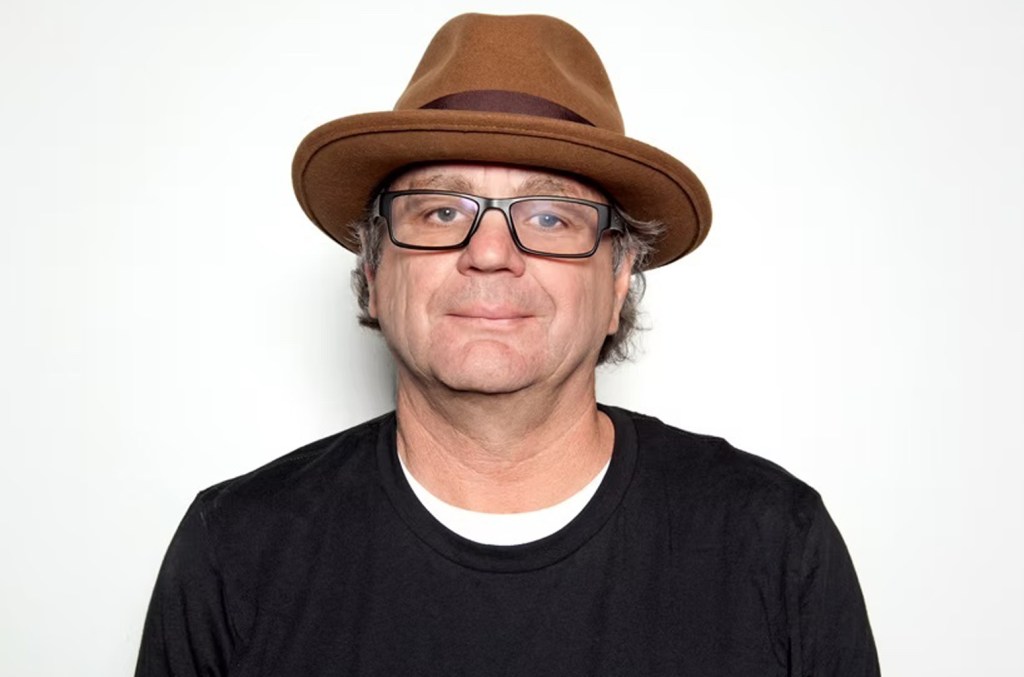
Vans Warped Tour might be one of the best-selling festivals of 2025, but organizers say no one music act is responsible for moving the bulk of the 240,000 tickets sold so far across three U.S. cities. Indeed, the brand name alone seems to have been enough.
“We sold the vast majority of those tickets before we had a lineup,” says Kevin Lyman, founder and producer of the traveling punk show, which ran from 1995 to 2018 before returning this year for a limited 30th anniversary run. Lyman, who has partnered with Live Nation festival company Insomniac for this year’s Warped, is working from a makeshift office and headquarters after the Los Angeles wildfires earlier this year forced him to leave his Altadena home, which was damaged but largely spared from the blaze.
“I think there’s nostalgia in the market, but it’s not just for the music — people are longing for events that are affordable and give them a chance to discover something,” says Lyman. Prices for this year’s Warped Tour are $149 for a two-day pass, and the tour is much shorter, with just three stops this year instead of the typical 36 markets. Two of the three markets piggyback off events organized by Insomniac: Warped’s Washington, D.C. stop, from June 14-15, comes two weeks after Insomniac’s Project Glow EDM fest; while the Orlando stop, Nov. 15-16, takes place one week after EDC Orlando at Camping World Stadium. Warped Tour is also coming to Long Beach, Calif., from July 26-27 at Shoreline Waterfront Park.
Trending on Billboard
Each of the three two-day stops on the tour accounts for nearly 80,000 tickets sold. When combined, the fans attending all six days of the Warped Tour this summer will have purchased 240,000 tickets. That’s likely more tickets than were sold at Coachella this year, which took place over two consecutive three-day weekends, sources tell Billboard. It also likely surpasses the number of tickets sold at the three-day Electric Daisy Carnival in Las Vegas.
Billboard recently caught up with Lyman to discuss the 30th anniversary tour, including how he pitched it to Steven Van Doren, son of Vans founder Paul Van Doren; his expectations from the fans; and whether the 2025 outing is a one-and-done or has the potential to return in 2026 and beyond.
What made you decide to bring Warped Tour back?
People don’t miss something until it’s taken away. I had a fantastic crew; we did a lot of marketing for bands and helped a lot of younger artists. And then, when we took it away, people realized that there was a place for something like Warped Tour. But by then I was busy doing other things — traveling, teaching my class at USC and working on other projects. And then the pandemic hit, and being on a college campus and being around young people, I could see a new need for Warped Tour arise.
What kind of reception have you received so far?
I think it’s been exciting because the bands that remember Warped Tour remember how important it was to their careers, and the younger bands now are super excited to be able to have that experience and be part of it.
Why did you bring in Insomniac for this year’s Warped Tour?
There’s a lot of people over there that grew up around Warped Tour, attended in the past and even worked on Warped Tour. Maureen Valker-Barlow, who works as a senior vp at Insomniac and landed her first job at Warped Tour, approached me, and it was easy for us to figure out how to work together. And then it was like the green light came on, and we just ran with it. They have great people over there like Amanda Phelan, who is a great booker, and Maureen, who I previously mentioned, handling sponsorship, as well as Chris Barlow and Nathan Armstrong in production. I’ve always operated as very small and independent, working in a garage, and they’re a big company, and they know how to run festivals. They handle a lot of the day-to-day stuff, absorbing a significant part of the logistics. And marketing. They’ve given me a little bit more of that structure. What was it like approaching Vans to do another tour? That was easy, because Steve Van Doren and myself go back — we’re talking 25 years of Warped Tour and years before that. It was easy to go over there and say, “Hey, here’s the idea, let’s bring it back with these people. I have faith in them.” Sure, there was a lot of paperwork, but it only took ten minutes of conversation to get this thing going.
Was it difficult to come up with a budget around a $149 ticket price?
Not at all, because I knew from the beginning that Warped would only work if we kept the ticket price fair. I feel strongly that a $149, two-day ticket is affordable to our fans. I think 90% of the reason that people are getting turned off by festivals is because they’re too expensive. Warped was always the show for people that maybe didn’t have that money for some of the other festivals. Both myself and Insomniac felt $149 was the right price, and a lot of people have responded to that price. It also helps that we delivered the lineup. It’s an eclectic lineup that touches on our history and past, but it also looks forward to the future. I’m excited to see which of the younger bands we’ve booked get the biggest reaction from the fans.
You’ve got some big names on the lineup this year like Avril Lavigne, Fishbone, Less Than Jake, Dropkick Murphys, Pennywise and Sublime. You’ve also got dozens of baby bands and newcomers scheduled to play. How do you strike the right balance between old and new?
Well, it’s partially an economic exercise. Every band you book, no matter how big, makes up part of your ticket price, and you always have a few that are reliable and a few that are more of a gamble. We’re booking some of these bands in January, wondering how big they will be in August? Are they going to be bigger than what we paid them? Can the $5,000 band generate $25,000 in value from fans who are excited to see them? If you look at our social media right now, we really don’t need to push Sublime or Rise Against. They’re already known. People are going to enjoy them, and they’re going to have a big, big crowd. We want to grab onto those younger acts like LØLØ or Honey Revenge and really boost them on our social media so they have a big audience at Warped Tour. A lot of what we focus on is leveraging the Warped brand and the larger bands to help raise the profile of the smaller acts.
Did you get the idea to list the bands on the lineup poster in alphabetical order from Insomniac?
No, that’s something I started doing in 1996 because I hate arguing over billing. I think we waste so much time arguing over font size on the poster when we should be marketing to fans and getting behind the show. People are smart. People will come and find the bands they want to see. If you could put Korn in the bottom corner of a festival lineup, people would find them and be excited about them.
What about scheduling? How do you keep egos in check with the schedule?
We don’t announce the set times until the day of the show. I do that because I want people to come early and enjoy all the young bands. I go to too many festivals where people come in at sunset and miss all the great young bands. And my thing is, Warped fans are diehard music fans. They’re not fashion fans, they’re there for the music. And they’re going to figure out the lineup. And I think everything we’re doing so far is working. Hopefully, we deliver the show that people will want to come see next year.
So Warped is not a one-and-done? This is a multi-year project?
I want to really go see what the first show is like in D.C. before we make any final decisions on that. I want to go see the audience and who’s coming. Is it people that want to be part of something moving forward, or people trying to capture a memory? My guess is that it will be a blend of both, but we’ll see.
Could it return as a true touring property, going from city to city, buses and all?
No. Definitely not. I can’t do that to myself, hitting the road for two months straight. I’ve had seven different surgeries because of the Warped Tour. I don’t need any more.
Jim James will kick of NIVA ‘25 with a keynote address on Sunday, June 22. The My Morning Jacket frontman will take the stage at The Pabst Theater in Milwaukee, Wisc. to discuss touring and open up the National Independent Venue Association’s fourth annual conference. In addition, legendary producer Jimmy Jam will address the conference […]
The Billboard Canada Screen Composers of the Year Award has its inaugural shortlist.
The award, presented by SOCAN, is shining a light on five talented composers who have made a global impact, scoring some of the most powerful moments in film and television.
Together, these musicians are responsible for the sounds behind some of the most talked about television and cinema of the past year, from The White Lotus to Palm Royale, massive IMAX documentaries to video games to major broadcasts of one of Canada’s national pastimes: hockey.
The winner will be announced at Billboard Canada Power Players on June 11, giving these pivotal artists – often positioned behind the scenes – a position onstage alongside the most powerful executives in Canadian music.
The shortlisters include:
Trending on Billboard
Cristobal Tapia de Veer – A three-time Emmy and BAFTA-winning composer who’s known for work on critically acclaimed series like HBO’s The White Lotus, C4’s Utopia, Black Mirror, and No. 1 box office surprise hit Smile.
Andrew Lockington – Hybrid composer for sci-fi film Atlas, Mayor Of Kingstown, Lioness and Landman. An avid Maple Leafs fan, he also composed the theme for Amazon Prime Monday Night Hockey NHL broadcast series.
Michelle Osis – Four-time Canadian Screen Award nominee Michelle Osis is best known for her score to the gigantic screen documentary TRex in IMAX, as well as for her collaborations with composer Mark Korven on Netflix’s Don’t Move and the MGM+ series Billy the Kid. With partner Terry Benn, she’s composed for Carved for Disney+ and the festival favourites film Dark Match and Sway.
Mark Korven – Award-winning composer Mark Korven is best known for his scores to the A24 features The Witch and The Lighthouse, and for the over 10 million YouTube views of him performing on his invention, the Apprehension Engine. The last two years have seen him working The Black Phone, The First Omen and Until Dawn for Sony Playstation.
Jeff Toyne – Toyne’s score to Apple TV+’s Palm Royale (Kristen Wiig, Laura Dern, Carol Burnett) combines jazz, Latin and orchestral elements to evoke the 1960s and has won multiple Emmys and Canadian Screen Music Awards, among others.
Read more about all the nominees here.
deadmau5 & REZZ, Khalid Star on the Cover of Billboard Canada
Billboard is bringing the Billboard Summit to Canada next Wednesday (June 11) at Toronto’s NXNE, and one of the standout panels is a conversation between deadmau5 and REZZ. This week, the pair appeared on the cover of Billboard Canada to unpack their creative process in a rare joint interview.
“We produce in two totally different ways,” says Joel Zimmerman, the man behind deadmau5. “I am so old school and she is so new school.”
Both artists hail from Niagara Falls, Ontario, and both are known for their innovative production, DIY ethos and big-stage spectacle. They’re both big thinkers and big presences, instantly recognizable for their larger-than-life visual trademarks – deadmau5 with his signature LED mau5head helmet and REZZ with her hypnotic spinning light glasses – and they both have dedicated cult fanbases.
REZZ – born Isabelle Rezazadeh – cites deadmau5 as an immeasurable influence.
“He essentially birthed me as a producer,” she says. “He birthed my entire interest in making music.”
In 2021, deadmau5 and REZZ officially joined forces with their first on-record collaboration, “Hypnocurrency.” It’s dark, spellbinding and meticulously layered – a slow-burning cinematic journey that lands squarely between their two sonic worlds. To create it, they both had to step outside their comfort zones.
When asked what he learned from working with REZZ, deadmau5 doesn’t miss a beat.
“I learned that there are BPMs that actually do exist below 128,” he deadpans. “I didn’t know that all you had to do was click on the number and drag it down.”
The two give unprecedented access into how they create, including a tease of another upcoming track as REZZMAU5.
Read the full story here and get your tickets to Billboard Summit here.
Khalid will headline Billboard Canada The Stage at NXNE the following day, on June 12. He also joined Billboard for a cover story for Billboard Canada and Billboard that dropped today.
The R&B and pop artist talks about his ‘flirty side,’ gay identity and the myth that he’s an introvert. “My new era of music feels like I’m finally ready to be the artist I’ve always dreamt of being,” he says. “It goes back to the regressions of when I was a child — imagining myself and thinking, ‘I want to be this artist one day.’ Now I feel like I have the confidence to finally be that artist.”
Read the full story here.
A court battle over the future of online lyrics is getting heated.
Months after LyricFind accused Musixmatch of seeking to monopolize the market for providing lyrics to streamers like Spotify by signing an “unprecedented” deal with Warner Music, the rival is striking back – demanding that a federal judge toss out the case entirely.
The lawsuit claims that Musixmatch violated federal antitrust laws, but in a motion to dismiss the case filed on Thursday, the company says all it did was beat a competitor.
“LyricFind, unable to convince WCM to do business with it instead, has filed this meritless antitrust suit … hoping it can obtain through litigation what it was unable to win in the marketplace,” the company’s lawyers write. “Stripped of buzzwords and hyperbole, the core of LyricFind’s Complaint is simply that WCM chose Musixmatch instead of LyricFind.”
Trending on Billboard
The legal war between the two lyrics providers kicked off in March, when LyricFind accused Musixmatch of engaging in unlawful conduct that had “eliminated competition and raised prices.”
At the center of the case is an agreement that MusixMatch struck with Warner Music. LyricFind claims the major labels have historically licensed their vast catalogs of lyrics on a non-exclusive basis, allowing firms to compete for the right to provide them to streaming services. The lawsuit says the new deal with Warner was instead an exclusive deal that allegedly shuts out competitors from offering the music giant’s lyrics — an “unprecedented” approach.
“Musixmatch’s goal was simple: make sure that Spotify, and other [streamers], have no choice but to obtain [lyrics] from Musixmatch despite its higher fees — a plainly anticompetitive result,” the company’s attorneys wrote at the time. (Neither Warner Music nor Spotify were named as a defendant in the case or accused of any wrongdoing.)
But in Thursday’s response, Musixmatch said it had done nothing wrong, arguing that antitrust laws are designed to “protect competition, not particular competitors.” The company said LyricFind had turned to the courts simply because it was “angered” that a customer had cut ties.
“LyricFind’s alleged injury flows from WCM’s lawful decision to end its relationship with LyricFind, which means that LyricFind would have been injured regardless of whether Musixmatch or a different firm was appointed as WCM’s agent,” the company’s lawyers write.
“Nor has LyricFind plausibly alleged how it is foreclosed from competing in the marketplace: the Complaint is conspicuously silent on the duration of the agreement, and contradictory and implausible allegations about the actual scope of exclusivity defeat any plausible claim of substantial foreclosure.”
A rep for LyricFind did not immediately return a request for comment on Friday.
The Academy of Country Music held a round of layoffs on Thursday (June 5), with approximately one-quarter of the staff impacted, Billboard has learned.
“Coming off a successful 60th ACM Awards week and renewal with Prime Video through 2028, the Academy implemented a strategic staff realignment in an effort to support its future business and growth initiatives, resulting in the elimination of five staff positions across various departments including communications, marketing, events and community relations,” the ACM told Billboard in a statement. “We thank these individuals for their dedication and contributions to the work of the Academy.”
ACM staffers who were laid off include Alexis Bingham (coordinator, events), Lexi Cothran (senior manager, communications and strategic initiatives), Jesse Knutson (director, publicity and media relations), and Brittany Uhniat (manager, creative and content production).
Trending on Billboard
Prior to joining the ACM, Knutson joined the ACM in 2022 and previously worked in television news, including time at Nashville’s NewsChannel 5 (WTVF). Bingham served as an intern at the ACM before joining the staff full-time in 2021. Cothran joined the ACM in 2024, and previously worked for PR companies including Shore Fire Media and Sweet Talk PR. Prior to joining the ACM, Uhniat served as creative coordinator at Resin8 Music.
Nearly a month ago, on May 8, the Academy of Country Music celebrated the milestone 60th annual ACM Awards, which aired on Prime Video from the Ford Center at the Star in Frisco, Texas. Ella Langley, Lainey Wilson and Alan Jackson were among the night’s biggest winners, with Wilson taking home her second ACM entertainer of the year trophy. Meanwhile, Langley won five trophies and Jackson was feted with the inaugural ACM lifetime achievement award. The 60th anniversary ACM Awards was hosted by Reba McEntire.
Meanwhile, the ACM also recently announced that the organization and ACM Awards producer Dick Clark Productions (DCP) had cemented a deal with Prime Video for the ACM Awards to continue on Prime Video for the next three years, running through the 63rd annual ACM Awards ceremony in 2028.

 State Champ Radio
State Champ Radio 